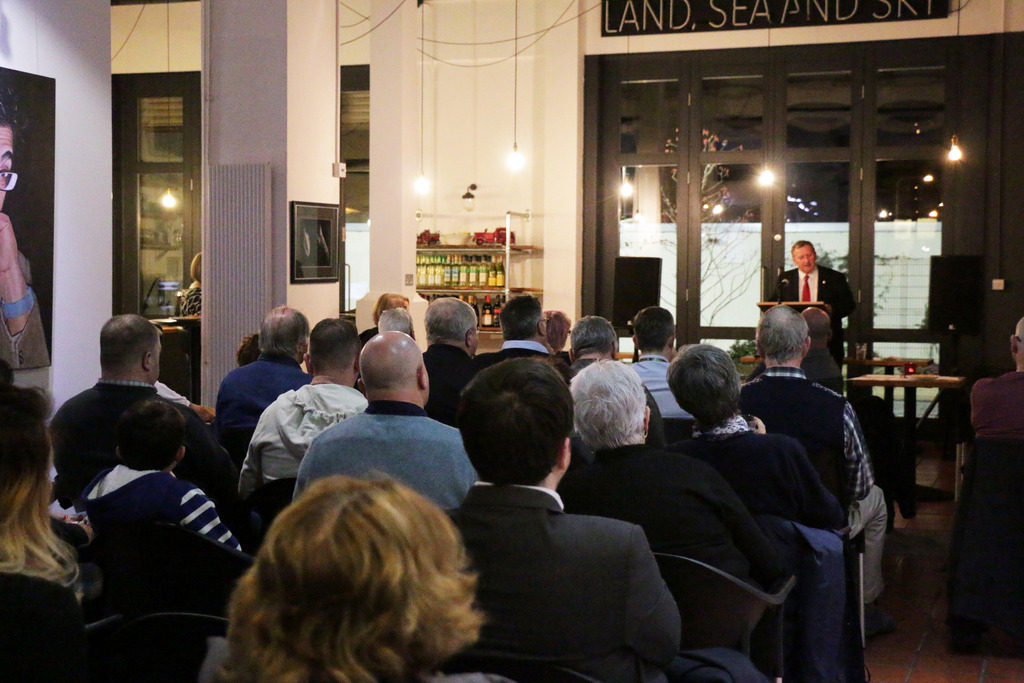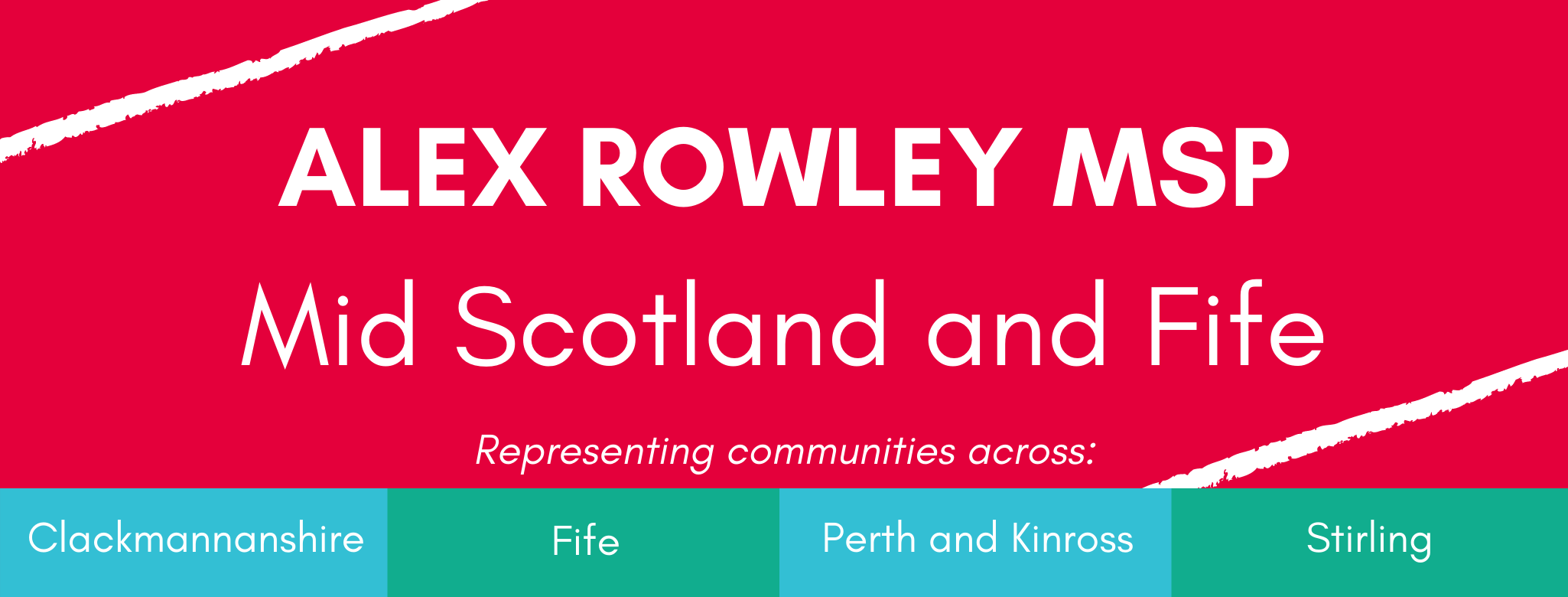
Brexit is far too important to be left to the politicians! That was one view expressed by an attendee when I hosted my first “Brexit – what next?” public meeting this week. I thought they have a point and certainly it cannot be simply left to Theresa May and a few of her cabinet Brexiteers.
I believe we need a discussion in our country about the best way forward and hope you will have a look at the speech I made and perhaps join me at a future discussion event.
It is important that communities across the country have their voice heard about what to do with Brexit, and I will be taking these public meetings across the Mid Scotland & Fife region.
SPEECH BELOW:
Good evening, welcome and thank you for taking the time to come along tonight to what is the first of many meetings I am holding across mid Scotland and Fife to encourage discussion on “What next post Brexit”.
There will be many differences of opinion in this room tonight and across our country and that is not a bad thing. The crucial thing is we are able to have an open, transparent and civil discussion on what is one of the biggest decisions facing our nation, and the nations and regions of the United Kingdom.
I am really pleased that I am kicking off these meetings here in this wonderful Art Gallery in Dunfermline which is the achievement of a group of people who had a vision and worked hard to deliver it.
I also hope you will take the time to view the latest exhibition by Celia Byrne who like me is from Kelty but unlike me, she is a brilliant artist!
Most people I have spoken to since the referendum have expressed how surprised they were at the result and that includes those who voted to leave!
I think most people, when they woke up on June the 24th did not get what they were expecting.
However, it was a close vote with 48.1% remain and 51.9% for leave -so the UK was pretty much divided down the middle. But as we know the vote, across the nations and regions highlighted huge differences in their response.
For your information, I have circulated a copy of the vote by nations and regions.
I think these variations raise many questions and there is now a wealth of opinion trying to analyse and explain the differences in the vote between nations and regions across the UK.
But for me, one of the pressing question is whether the current UK constitution is suitable for 21st century Britain. I would suggest that as part of our determination to find the best way forward post Brexit for our relationship with Europe and the rest of the world, we must also establish a review of how the UK is organised and is governed.
Before I expand on this I think it is important to acknowledge that across the UK over 17 million people did vote to leave, with over one million of them here in Scotland. I point this out because I do get concerned when I hear ‘Remain’ politicians give the impression that those who voted leave did not know what they were doing.
Now, there was a serious issue about the lack of facts and the miss information on both side of the argument in the lead up to the referendum but you cannot dismiss 17 million voters as deluded.
I have spent time since the referendum in communities and on doors across Scotland and have enjoyed speaking with hundreds of people who voted both ‘remain’ and ‘leave’ about our politics and our place in the UK, in Europe and in the world.
I have to say I have been really pleased and quite excited about the level of politics being discussed in our communities.
People do worry about the things that they believe affect their daily lives, things like immigration for example;
And you know, the more dismissive the intelligentsia are of such concerns, the more the feeling of alienation will grow.
It’s unfortunate that the media hype ahead of the referendum centred on vested interests and personalities and that some politicians who are now cabinet ministers could openly lie, and foster a very negative and divisive debate.
So it is my view that we need a different kind of discussion and we need to be open to all issues that people want to discuss.
Jeremy Corbyn, the leader of my party at a UK level has highlighted that many of the concerns raised by people about immigration are actually issues of social policy for government, issues around the availability of key public services like GP’s, schools and housing.
The same is true in Scotland with such public services – and also in relation to skills shortages, cuts to college budgets and the failure to give people in this country the opportunities and skills to get the jobs that are available.
Earlier this week I met with a Scottish care home owner who told me that 30% of his workforce was from overseas, and he is still struggling to recruit the numbers of staff that he needs. This is repeated across many sectors of our economy across all of Scotland.
Now I believe that there is a responsibility on the government in Edinburgh to do more on workforce planning, regional economic planning and skills development so that every Scot is given the opportunity to get decent work.
But even if the government got its act together in this area, we would still need economic migration into Scotland.
I am clear in my mind, as is the evidence clear, that in Scotland economic migration is not just a good thing, it is absolutely essential for our future and it is for this reason that I want to promote a discussion about the free movement of labour and what kind of immigration policies Scotland needs as we move forward.
Our new Prime Minister has said ‘Brexit means Brexit’ but what does that mean? It means we, including Scotland, are leaving the EU – but other than that the terms of our exit must be up for negotiation and must be open to discussion in our Parliaments and in our communities.
Only this week it was reported that Mrs May is aiming to secure a deal for the City of London and for financial services across the UK. I can understand why she would want to do this, given the impact a hard Brexit would have, leading to a dramatic fall in tax revenues from the city.
However, the same argument would be made in Scotland for whisky, food and drink and other key sectors of our economy.
So just as the City of London has specific needs, so too does Scotland, and that is why all our energy and total focus must now be on what Scotland needs.
Today, the SNP have published a draft bill on a second independence referendum for Scotland and I want to first take a few moments to deal with this issue.
I have to say I believe the continued obsession with whether or not Scotland should have a second independence referendum is at this time a complete distraction from the major issues we must deal with.
Right now it is reckless to divert our attention and our focus away from getting the best Brexit deal for Scotland to a false debate about a second independence referendum.
I say false debate because what would such a proposition be? Until we know what the Brexit arrangement is we cannot possibly know what is on offer.
64% of our trade is with England, and its estimated there are four times as many jobs linked to Rest of the UK compared to the European Union. So if we are out of the UK but in Europe would there be an economic border with England? Would there be tariffs with England and how many jobs would be at risk?
If Scotland were in the EU and signed up to free movement of people and England was not – could EU citizens come and go from Scotland at will whilst English people would need a passport to get through the border?
Would we have the Euro or the Scottish pound and would we be under the control of bureaucrats in Brussels and Berlin? So break up Britain to be controlled from Brussels?
Scottish people have voted in 2014 and 2016 to remain inside both unions – but is this now feasible? If it is not, what are the positions Scotland should take if we cannot deliver the optimum deal?
Who knows? There can be no central proposition until we know the terms of Brexit.
These are questions that cannot be answered at this stage, and will not be answered until we know the terms of the UK Brexit deal. So it makes no sense to speculate at this time about a second independence referendum when we do not know on what terms and what proposition that referendum would be based.
Even in the spirit of being prepared for eventualities it is too early to put the wheels in motion on any second referendum. I want all our energies to be focused on securing the best deal for Scotland as part of the Brexit negotiations.
I believe that this will require more powers being devolved to Scotland as part of a Home Rule agenda to deal with the inevitable constitutional and economic changes following on from Brexit.
And can I say that from speaking with so many people over the summer – I believe this is where a majority of Scots are at. They want us to focus on what a future Brexit deal could mean for Scotland.
And I am clear this is not just people who voted No in 2014 but also very many who voted Yes.
That is what I picked up throughout the summer and it is also more importantly what polls have consistently shown since the Brexit vote.
So as we move forward with the discussion I hope we can begin to move beyond the narrow constraints of nationalism and unionism to what is in the best interest of the people of Scotland. I think the Scottish people deserve no less.
The Shadow Secretary of State for Exiting the European Union, Keir Starmer has tabled 170 questions that need to be answered by the UK government. Copies of these are available tonight to support you with the ongoing discussion.
I don’t presume to have all the answers, but I am clear that we must develop a national consensus on the best deal for Scotland as we approach the moment early next year when Article 50 is likely to be triggered. This will see the start of 2 years of negotiations.
There are key issues around the free movement of goods and services, the free movement of people, the implications for structural funding, for agriculture and fisheries, employment rights, the environment and climate change, law enforcement and security, financial services, foreign and defence policy, the interest of business, of consumers, of human rights, the education programmes, our relationship with other countries on health, disability law and taxation, and crucially what is the role of Parliament, the UK Parliament and for us the Scottish Parliament.
All issues and questions that must be explored and answered.
In Scotland we have specific requirements which means we will need to see powers that are coming back from Europe come direct to our Parliament in Edinburgh.
If it is right for the City of London to get a deal on access, then it is equally right for Scotland to state the case for tariff free access to the single market, for Scotland to be in a position to agree immigration policy to meet the needs of our economy and for Scotland to set the condition that there will be no rowing back on employment rights which supports wages and workplace justice.
I believe this will also be the case in many parts of the UK and is why I return to where I started which is not just that we need a better understanding of what is to replace the EU before we trigger article 50 but that we need sitting alongside the Brext negotiations we must establish a review of how the UK is organised and governed.
In addition to strengthening the powers of the Scottish Parliament in response to Brexit we must also create a UK wide Constitutional Convention.
Under the Tory government’s current proposals, they would repatriate powers from Brussels over agriculture, fisheries, regional policy, VAT and other issues and they plan to centralise these powers in Westminster and Whitehall.
A far better way – that the constitutional convention can examine – is that these powers come from Brussels not to Westminster but to the nations and regions of the UK.
What a constitutional convention will show is how we can restructure the British constitution to reflect the social and economic needs and aspirations of the people of the United Kingdom as revealed by their disenchantment with Westminster, with Whitehall and the London elites.
All nations and all regions share the same desire to combat a London centric view of the world. Scotland has demonstrated this and Brexit gives us the opportunity to lead the transformation of the way the UK is organised and governed.
In Scotland our country is divided along the lines of those who are describe as Unionists and those described as Nationalists and the same is true for the political parties. I believe there is a better way.
The SNP talk only of the benefits of being in Europe and the disadvantages of being in the UK whilst the Tories talk only of the benefits of being in the UK and disadvantages of being in Europe.
So Scotland is in danger of being stuck for years trapped between these two polar opposites.
I am suggesting that there is another way, a better way that is not ideologically fixed to either unionism or nationalism but rather to what is in the best interest of the people of Scotland.
Standing up for Scotland, making the case for a new constitutional settlement fit for the 21st century, putting the interests of people of every part of the UK first, and taking power to the level which gets the best deal for all the people who are part of the United Kingdom.
Why would we build borders when we should be building houses, building the living standards of all the people, building for the future by building a strong economy in every part of the UK pooling and sharing resources to do so.
Let us focus on the issues, the vision, the hard work, for together we can deliver a better Scotland, in a better United Kingdom, in a better Europe striving to create a better world
Thank you



